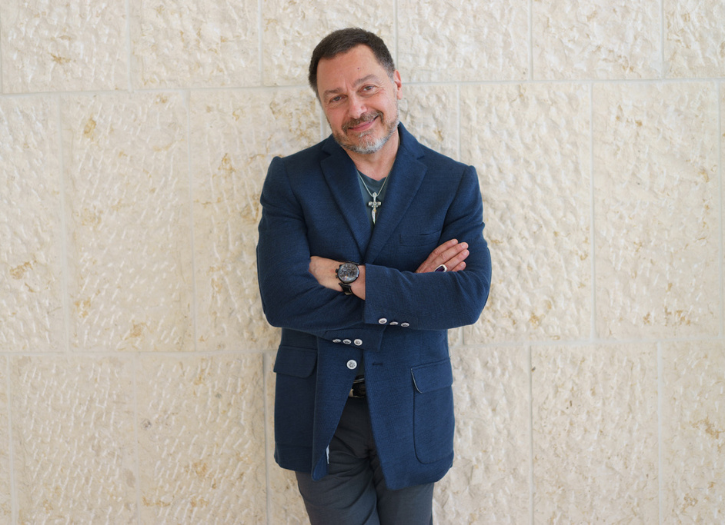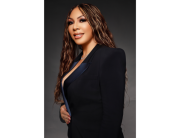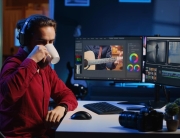Cultural malaise has become a defining feature of our time—an undercurrent of anxiety, restlessness, and disconnection that pervades both public discourse and private lives. Many feel unmoored, caught between old certainties that no longer hold and an uncertain future that offers little clarity. The speed of change, the erosion of shared narratives, and the relentless demands of modern life have left many grappling with a quiet but persistent sense of meaninglessness. We are, in a very real sense, a culture in existential crisis.
Rollo May, drawing from existential psychology, argued that anxiety is not merely a symptom to be medicated away but a signal—an invitation to confront what is unsettled within us. He saw modern malaise as the result of a world that no longer provides clear structures for meaning. “Symptoms are ways of shrinking the periphery of the world with which one has to deal to a size with which one can cope”. When institutions lose their authority and traditions no longer anchor us, we are left with the daunting task of constructing meaning for ourselves.
Yet, as May pointed out, many resist this responsibility, preferring distraction, conformity, or the illusion of certainty over the harder work of self-examination. Anxiety, then, becomes a cultural condition—one that reveals a deeper, unspoken fear: that we are unmoored in a world that no longer provides easy answers. And yet, May warns, “if we did achieve freedom from all anxiety, we would find ourselves robbed of the most constructive stimulant for life and for simple survival”.
May challenges the modern impulse to treat problems as mere obstacles to be eliminated, suggesting instead that they serve a deeper purpose. If we view anxiety and uncertainty as disruptions that must be resolved immediately, we miss their role as catalysts for growth. “Problems are the outward signs of unused inner possibilities”.
This reframes suffering—not as something to be eradicated, but as something to be engaged. The resistance to confronting life’s difficulties is often a resistance to facing the untapped depths within us. If we constantly shrink our world to avoid what is uncomfortable, we also shrink our potential. May’s insight pushes us to see that struggle is not the enemy of flourishing; rather, it is the very space in which transformation occurs. To engage our fears, our anxieties, and our uncertainties is not to be defeated by them but to discover the possibilities they conceal.
Anxiety, then, is not simply an ailment to be cured but an unavoidable byproduct of being fully alive. To erase it entirely would be to erase awareness of our own fragility, our responsibilities, and even our capacity to engage meaningfully with life itself. As May furthermakes clear, life’s major experiences—birth, death, love, guilt—are not “problems to be solved” but paradoxes to be confronted. He insists that “the acceptance of normal anxiety is necessary if we are to be able to free ourselves of neurotic anxiety”. In other words, those who seek to avoid anxiety altogether only drive themselves deeper into a state of compulsive avoidance, robbing themselves of the wisdom that anxiety can bring.
The implications of this run deep. He further explains that “without anxiety there would be only barren despair”. If we are anxious, it means that we care—that we have values, however conflicted, that guide our lives. Rather than dismiss anxiety as an unwanted affliction, we might see it as a sign that something in us still longs for meaning.
Yet the struggle with anxiety is not simply about fear; it is about the tension between being and nonbeing. Here, May engages Kierkegaard, noting that “the real terror in anxiety is not death as such but the fact that each of us within himself is on both sides of the fight, that ‘anxiety is a desire for what one dreads'” .
This insight reveals why so many resist the confrontation with anxiety—it is not just about fear of the unknown but fear of the responsibility that comes with freedom. Anxiety lays bare the fact that we are both drawn toward and terrified of the choices that define our lives.
James Hollis extends this existential critique, arguing that much of cultural fatigue stems from our collective avoidance of depth. In his view, we live in a society that prioritizes external achievement over internal reckoning, material success over soulful reflection. This creates a split between the life we perform and the life we actually live. He suggests that much of what we call “midlife crisis” is actually an awakening—an unwillingness to continue living according to the scripts inherited from culture, family, or societal expectations.
“The midlife crisis, which I prefer to call the Middle Passage, presents us with an opportunity to reexamine our lives and to ask the sometimes frightening, always liberating, question: ‘Who am I apart from my history and the roles I have played?'”
When we discover that our accomplishments have not quieted the deeper hunger within, we are faced with a choice: to seek deeper meaning or to numb the discomfort through distraction. Hollis reframes this passage not as a crisis to be avoided, but as an initiation into what he calls “the second adulthood,” where one moves beyond the “false self” shaped by external pressures and into a more authentic, self-examined existence.
He also presents an unsettling but necessary insight into this tension:
“When I admit that the only person present at every moment, in every scene of the long-running soap opera I call my life is me, then I am obliged to admit that, despite the profound ministries of fate and the choices of others, I am somehow responsible for the patterns, the replicative consequences, and the many estrangements from self and others that keep showing up in my life”.
This level of accountability is not easily embraced. If we are responsible for the repeated disappointments and disillusionments of our lives, then we must also acknowledge that the meaning we crave cannot come from external validation. Here is what he makes abundantly clear:
“We all tend to treat the vicissitudes of our lives… as insurgencies, usurpers of our control and ego frames, and we stoutly resist growth and change, even though this is the natural order of all things”.
This resistance is precisely what leads to the sense of cultural malaise so many experience today. When we avoid the difficult task of reckoning with our inner lives, we create a hollow existence—one in which we pursue distractions rather than depth, external success rather than inner fulfillment.
This is where cultural malaise and personal crisis intersect. When a society discourages introspection, when it rewards performance over authenticity, it breeds individuals who are cut off from their own depths. The result is a pervasive sense of unease—a feeling that something is missing, even if we cannot name what it is. Hollis argues that the only way through this is to take responsibility for our inner lives, to stop seeking validation from the external world and instead cultivate an internal authority. True meaning, he suggests, does not come from fitting into cultural expectations but from aligning one’s life with what the soul truly desires.
May and Hollis both point toward a truth that many resist: malaise is not something to be eradicated but understood. It is a call to transformation, an invitation to step beyond the shallow certainties of the first half of life and into the deeper work of self-discovery. The discomfort many feel today is not a sign of failure but of awakening. The question is whether we will heed that call or continue to drift, waiting for a culture that has no answers to give.
Dr. Mark Chironna is a public scholar, executive and personal coach, and thought leader with five decades of experience in leadership development, cultural analysis, and future-focused strategies. With advanced degrees in Psychology, Applied Semiotics and Futures Studies, and Theology, he brings a unique interdisciplinary approach to helping individuals and organizations navigate complexity, unlock potential, and craft innovative solutions.
As a Board Certified Coach with over 30,000 hours of experience, he empowers leaders and teams to thrive through resilience, foresight, and actionable strategies. Passionate about human flourishing, he integrates psychological insight and cultural trends to inspire growth and transformation.
Photo Credit: Dr. Mark Chironna







Add Comment